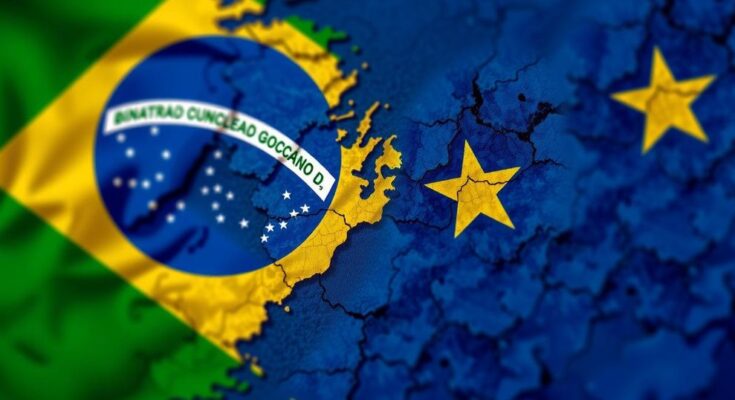Brazil, as a founding member of BRICS, may see its influence wane due to the group’s expansion, which includes new members like Iran and the UAE. While Brazil seeks to maintain its clout by opposing the inclusion of Venezuela, the changing dynamics within BRICS require the nation to redefine its diplomatic strategies. Brazil’s upcoming presidency of BRICS offers a key opportunity to influence the group’s future direction.
Brazil’s Struggle to Maintain Influence within BRICS Amid Expansion Despite being a founding member of BRICS and prominently represented by its name, Brazil is facing a potential decrease in its influence within the group as it undergoes significant expansion. Historically, Brazil has wielded considerable power within BRICS, largely due to its exclusive membership that, prior to recent changes, included only South Africa as an additional member. However, this dynamic is shifting as four new members—Egypt, Ethiopia, Iran, and the United Arab Emirates—joined the coalition in January, with additional partnerships anticipated. While the expansion increases BRICS’ global presence and appeal, especially among countries seeking alternatives to Western financial systems, it also poses risks for Brazil. The inclusion of anti-U.S. states like Iran threatens Brazil’s narrative that the bloc seeks equitable solutions rather than opposing any particular nation. It introduces a rift within BRICS, as Brazil, India, and South Africa advocate for nonalignment, while China and Russia appear to favor a more confrontational stance against Western powers. At the recent BRICS summit in Kazan, Russia, Brazil sought to assert its remaining influence by attempting to block Venezuela’s partnership aspirations, directly challenging President Nicolás Maduro amid tensions surrounding Venezuela’s disputed election results. This stance marks a significant diplomatic maneuver for Brazil, aligning with its domestic priorities of promoting democratic reforms in the region. Furthermore, Brazil’s promises of democratic support, as articulated by advisors like Celso Amorim, reflect a strategic shift towards fostering responsible governance in neighboring countries. In addition to these internal dynamics, Brazil prepares to host and chair BRICS events in the upcoming year, presenting a critical opportunity for the country to influence the group’s trajectory. As the New Development Bank continues under the leadership of former President Dilma Rousseff, Brazil remains committed to diversifying financial practices within BRICS, including a gradual move towards decreased reliance on the dollar. As events unfold, Brazil’s actions during this transitional phase may decisively shape its standing within BRICS and signal the future direction of the group itself.
**Context of Brazil’s Role in BRICS** BRICS, comprising Brazil, Russia, India, China, and South Africa, has historically been seen as an alternative alliance to Western-dominated institutions. Brazil, as the first listed member, has enjoyed a unique influence within the organization, particularly during its earlier, smaller configuration. Nevertheless, recent expansions, characterized by the admission of additional countries with contrasting political stances, are shifting the balance of power within the group. This changing landscape necessitates a reevaluation of Brazil’s diplomatic strategies as it caters to both regional aspirations and the demands of an emerging multipolar world.
In conclusion, Brazil faces a dual challenge of maintaining its influence within the expanding BRICS network while navigating complex international relationships. The expansion of BRICS not only enhances the group’s global significance but also poses significant risks to Brazil’s historical leadership role. With recent diplomatic maneuvers aimed at supporting democratic governance in neighboring countries like Venezuela, Brazil seeks to redefine its position within the coalition. The upcoming year, during which Brazil will chair BRICS, presents a critical opportunity for the nation to shape the future direction of the group and reaffirm its relevance in international affairs.
Original Source: foreignpolicy.com



